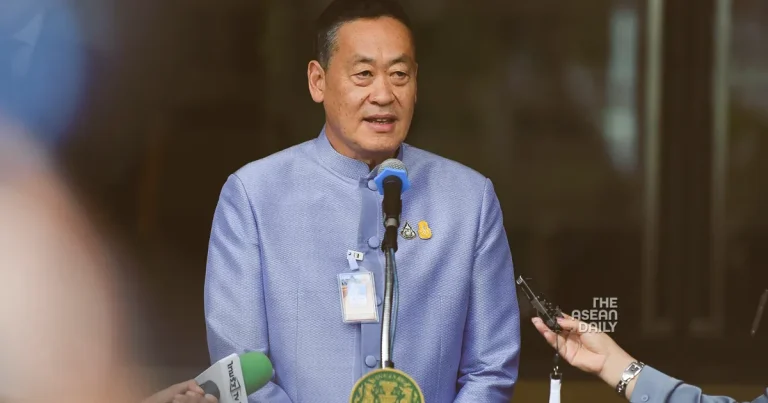24-10-2023 (BANGKOK) On Tuesday, Prime Minister Srettha Thavisin, who also serves as the finance minister, stood firm in defence of his government’s economic stimulus initiatives. He asserted that these measures were strategically aimed at addressing immediate concerns, primarily focused on reducing the cost of living and energy for citizens.
In an effort to shed light on the government’s stance, Deputy Prime Minister and Commerce Minister Phumtham Wechayachai addressed the criticism directed at the 10,000-baht digital currency handout scheme, emphasising that such concerns would not compromise the stability of the government. He pointed out that the Pheu Thai Party had been deliberating this project for several years and was merely exploring innovative strategies to address economic challenges “outside the box.”
The coalition government, led by Pheu Thai, has unveiled an array of measures, including a plan to allocate 10,000 baht (equivalent to US$276.5) to every individual aged 16 and above, delivered through a “digital wallet.” This ambitious scheme aims to reinvigorate an economy that has been grappling with sluggish growth.
However, the rollout of the 560-billion-baht digital wallet initiative has been postponed from the original start date of February 1 to sometime in the first quarter of 2024. This delay comes in response to concerns that the scheme may exert undue pressure on state finances.
The Thai economy has faced challenges, with growth registering at a mere 1.8% in the April-June quarter compared to the same period the previous year. Weaker exports and reduced investment have counteracted the resilience of the tourism sector.
In a bid to counter economic stagnation, the Bank of Thailand (BoT), which has consistently advocated for fiscal discipline, has recently raised its growth projection for 2024 to 4.4%, up from the previous estimate of 3.8%. Last year, the economy recorded a growth rate of 2.6%.




